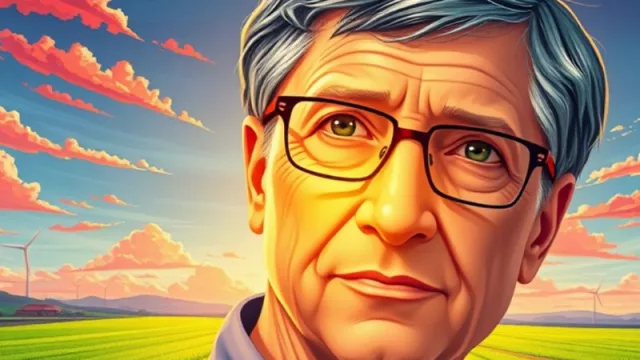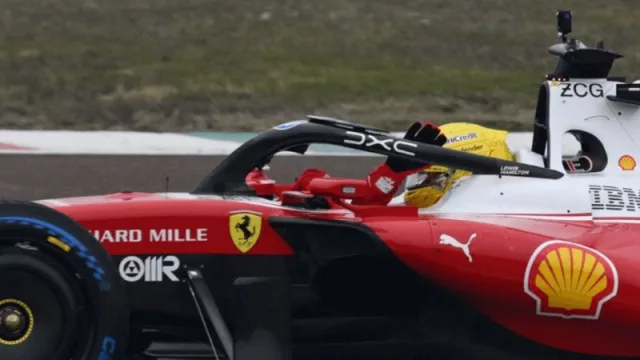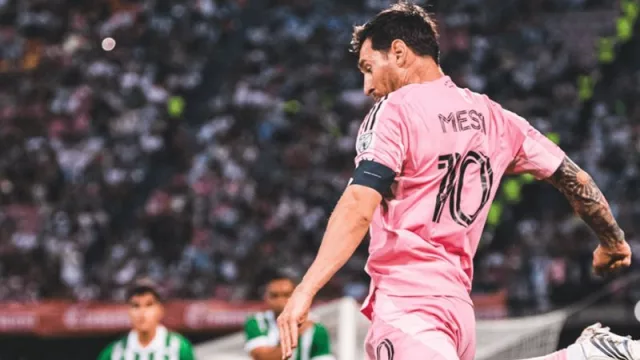Summary and Tips
Bill Gates's investment in farmland is a bold strategy that reflects a long-term vision of financial stability and sustainability. Although his focus is not directly related to the climate crisis, the connection to his green technology initiatives suggests a future where agriculture and innovation are intertwined.
-
Investment in Land: Bill Gates owns 110,000 hectares of farmland in the U.S., an investment that started in 2013 through Cascade Investment.
-
Motivations: The investment is based on the constant appreciation and low volatility of farmland, without a direct relation to the climate crisis.
-
Impact and Future: Although Gates does not alter agricultural practices, his strategy could influence future green technology and sustainability initiatives.
Bill Gates's Investment Strategy
"Since 2013, through his firm Cascade Investment, Bill Gates has been investing in farmland for its constant appreciation and low volatility," Gates declared in a recent Q&A session on Reddit. "My investment group chose to do this. It's not related to the climate crisis."
Relevant Data:
-
Hectares: Gates owns 110,000 hectares across 18 U.S. states.
-
Start of Investment: The investment began in 2013.
-
Appreciation: The average price of farmland in the U.S. has multiplied by six from 1940 to 2015.
"Gates's strategy reflects a broader trend among the super-rich, who have seen farmland as a safe monetary haven since the early 2000s, especially after the financial crisis," notes a Forbes article.
Impact on Society and the Economy
"Investment in farmland is not just a financial decision, but one that can impact food production and wealth distribution," comments economist John Smith
Relevant Data:
-
Food Production: Gates allows professional farmers to continue working their lands without changes in practices.
-
Conspiracy Theories: Some theories suggest Gates seeks to control food production, though he has debunked these claims.
Gates's strategy of acting as a landlord and not altering existing agricultural practices demonstrates a long-term vision and commitment to the stability of farming communities.
Sustainability and Green Technology
"The connection between farmland investment and Gates's green technology initiatives might be deeper than it appears," suggests sustainability expert María López in an article for GreenBiz on April 12, 2025.
Relevant Data:
-
Productive Seeds: Gates has mentioned the importance of productive seeds to avoid deforestation.
-
Biofuels: The production of biofuels, which heavily depends on corn, was also mentioned by Gates.
Gates's mention of productive seeds and biofuels in his Reddit talk suggests that his agricultural empire could be fertile ground for future green technology innovations.
Implications for the Future
"Bill Gates's investment strategy in farmland could be a precursor to significant changes in agriculture and sustainability,"
Relevant Data:
-
Ongoing Trend: The amount of arable land in the U.S. is decreasing, which could increase the value of current investments.
-
Innovation: The integration of green technology in agriculture could transform the industry.
"Bill Gates's investment in farmland is not only a bet on financial stability but also a vision of a more sustainable future," concludes an article from The Washington Post on April 13, 2025.
Frequently Asked Questions (FAQs):
Why does Bill Gates invest in farmland?
Gates invests in farmland due to its constant appreciation and low volatility, a strategy that started in 2013 through Cascade Investment.
How does Gates's investment impact food production?
Gates allows professional farmers to continue working their lands without changes in practices, which does not directly alter food production.
Is there a connection between Gates's investments and his green technology initiatives?
Although Gates has mentioned the importance of productive seeds and biofuels, he has not established a direct connection between his land investments and his green technology initiatives.
What future is envisioned for agriculture and sustainability?
The integration of green technology in agriculture could transform the industry, and Gates's strategy could be a precursor to these changes.
Highlighted Tips:
-
Diversify Your Investments: Consider investing in tangible assets like farmland for long-term stability and growth.
-
Leverage Sustainability: Research how sustainability can increase the value of your investments and attract conscious consumers.
-
Stay Informed: Follow global trends in agriculture and green technology to anticipate investment opportunities.
Follow us on: IG: @infonegociosmiami (Síguenos).
Subscribe for free to receive all strategic information and be part of the largest business and culture community across the Anglophone-Latino world!:
Contact Infonegocios MIAMI:
Read Smart, Be Smarter!












Tu opinión enriquece este artículo: